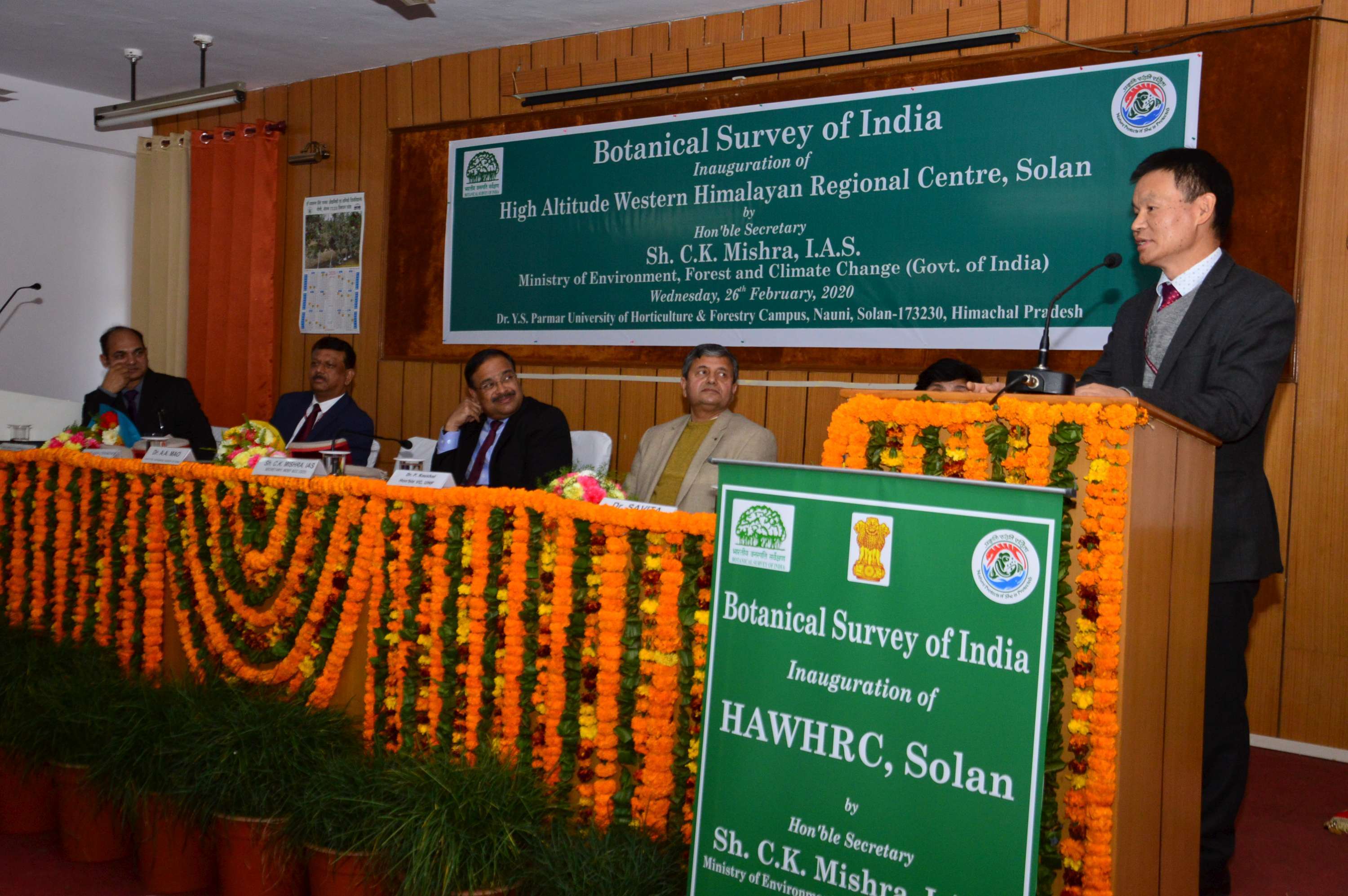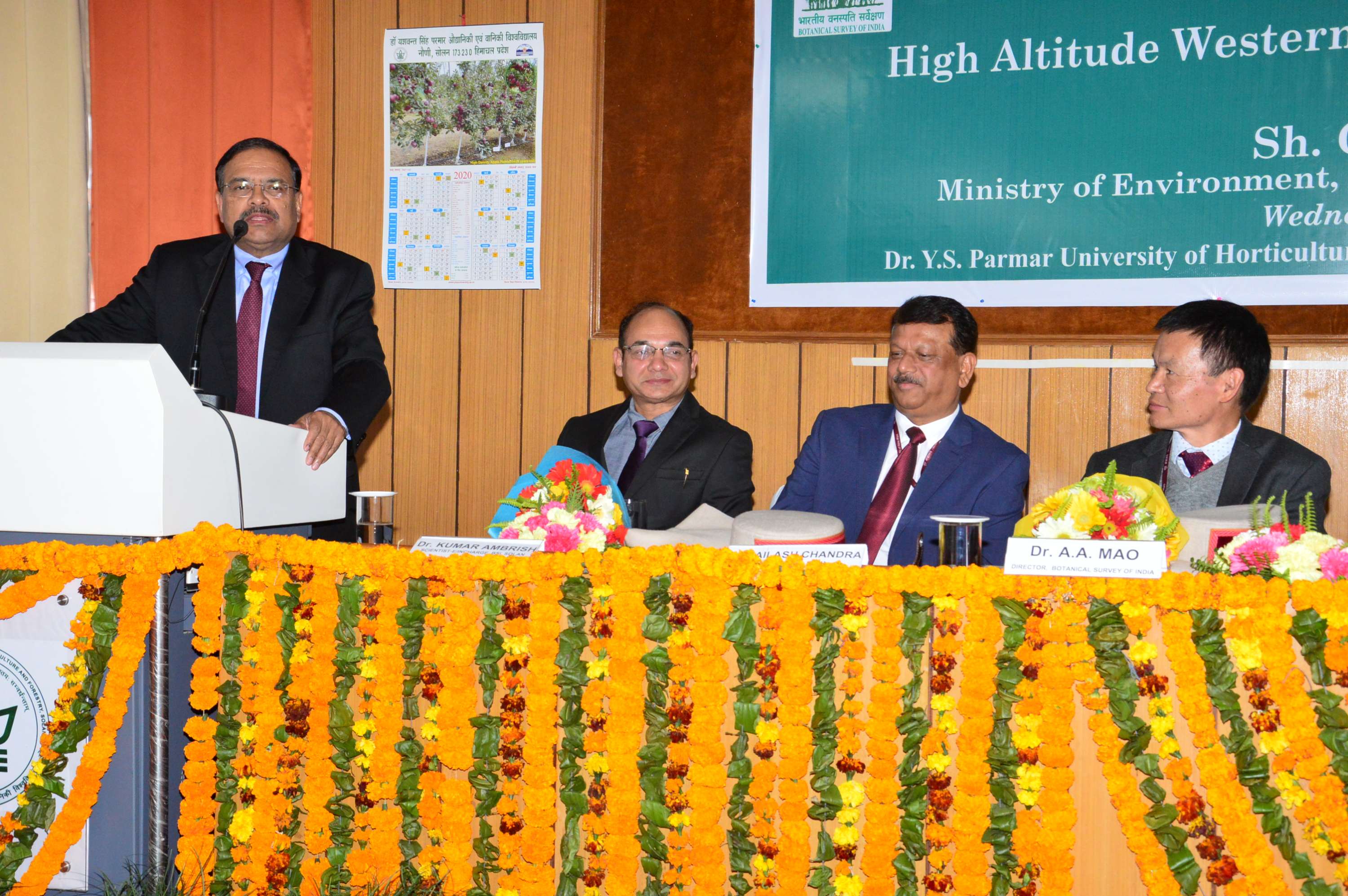The high altitude regions of Western Himalaya required an intensive floral exploration as this region has a rich diversity of many EET and medicinal plant species. It was very difficult to adequately explore this area due to long distance from the Headquarters of Botanical Survey of India, Kolkata and from the BSI, Northern Regional Center, Dehradun. In view of such difficulties, a new BSI regional center named as High Altitude Regional Center was proposed to setup at Solan to carry out intensive and extensive field surveys to explore and document the floristic diversity of Western Himalayan states viz. Himachal Pradesh, Jammu & Kashmir and Ladakh. The remote and difficult areas like Kashmir valley, Ladakh, Pir Panjal, Lahul & Spiti ranges are easily accessible to document the floristic diversity.
The High Altitude Regional Centre of the Botanical Survey of India was established on 10th December, 2019, with Himachal Pradesh, Jammu & Kashmir and Ladakh under its jurisdiction with an area of more than 200000 Sq. Kms. The remote regions of Jammu and Kashmir, Ladakh and Himachal Pradesh (Kinaour, Chamba, Lahul Spiti, Kullu, Shimla-Dodra Kawar, Mandi-hikari devi, Barot, Janjayali and Karsog valleys) fall under cold desert area of the Western Himalaya and are easily accessible from this center. Director of the BSI Dr. A.A. Mao initially appointed Dr Kumar Ambrish, Scientist- E as the 1st Scientist In-charge and Dr. Kuldip S. Dogra, Scientist- D at this centre to run the office and also for future planning of research activities in the High Altitude Western Himalayan Regional Centre.
Initially the temporary campus was setup at the Dr YS Parmar University of Horticulture and Forestry, Nauni. The University has leased the 6.6 acres of land for 99 years o Botanical Survey of India near Kalaghat village to develop campus of HAWHRC office building (research labs, seminar and audio, visual hall), residential complex and experimental botanic garden.
THE MANDATE
SURVEY AND DOCUMENTATION OF FLORISTIC DIVERSITY
DATABASE DEVELOPMENT OF WILD RESOURCES
CONSERVATION OF EET SPECIES
Capacity Building AND TECHNOLOGY TRANSFER
EXTENDED SERVICES
Identification of plant specimens
Technical and advisory services
Training in plant taxonomy and herbarium methodology
Educational awareness related to environment, climate change, eco-sensitive zones,invasive alien plant species (IAPS) and sustainable utilization of plant diversity.
Environmental Impact Assessment (EIA) studies
Advisory Services to:
1.Forest Departments
2.State Biodiversity Boards
3.State Wildlife Boards
4.Government Institutes, Universities and Colleges
5.Establishment and development of Botanic Gardens.



